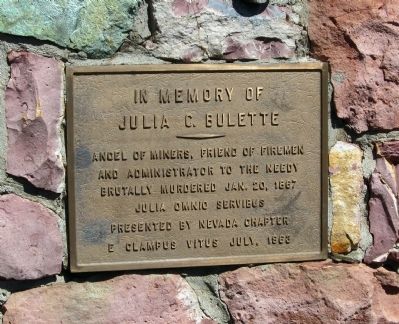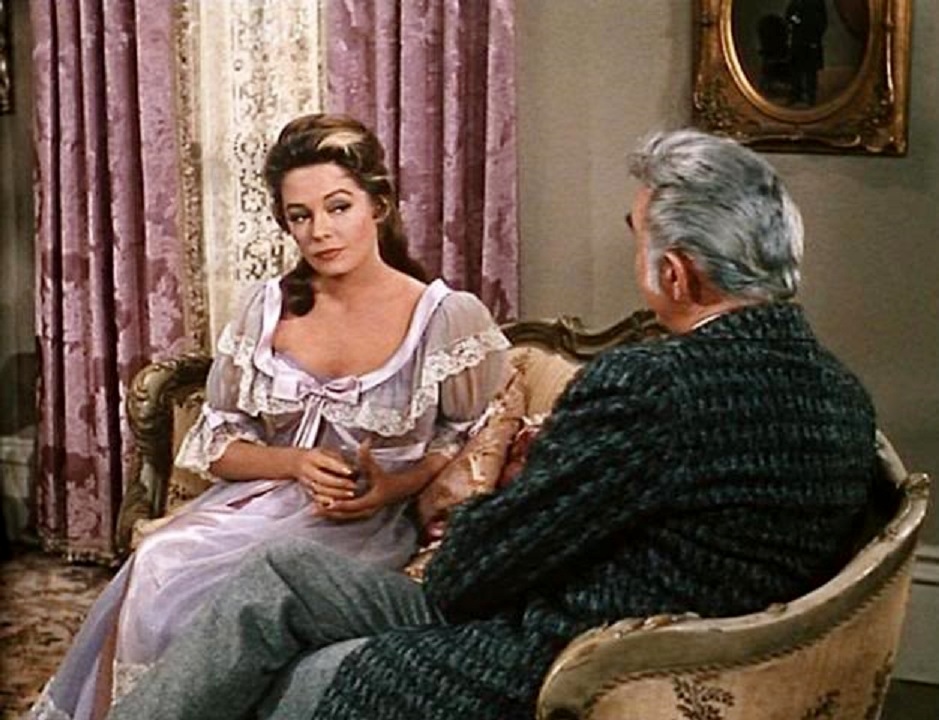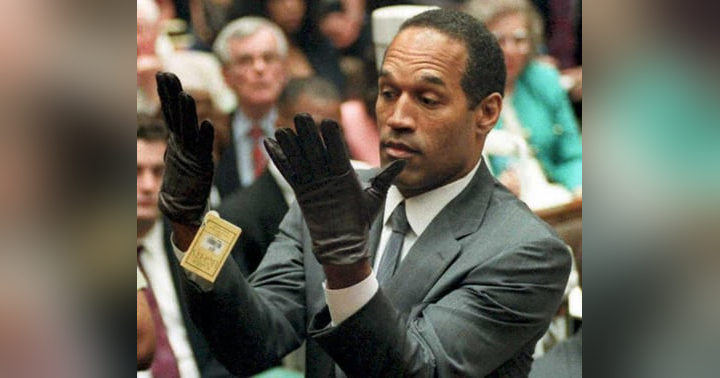The Untold Story of Julia Bulette: Survival, Scandal, and Silver Rush Secrets

The Lone Woman of Virginia City: Juliette Bulette’s Wild Gamble
Most people who chased the American Dream back then didn’t find a dream. They found hard dirt, broken ribs, and disappointment that smelled like cheap whiskey. But Juliette Bulette? She wasn’t most people.
Born in London, England, Juliette grew up surrounded by a city choking on tradition and coal smoke. By the late 1830s, she was ready for something bigger. Something messy and wide open. So she packed her life into a few trunks, followed her family across an ocean, and landed in California — a place that still looked more like a rumor than a promise.
They drifted for a while, chasing opportunities that always seemed just out of reach. But somewhere along the way, Juliette decided she was done chasing other people’s dreams. She wanted her own. And she wasn’t afraid to leave everyone behind to find it.
That chance came in 1859, with a discovery that exploded across the West like wildfire soaked in rumor: the Comstock Lode. Deep in the Nevada mountains, miners had hit the largest deposit of silver North America had ever seen. Word traveled fast. Men sold everything they owned — land, livestock, even their wedding rings — for a shot at staking a claim. They flooded the desert in waves, hauling pickaxes and desperation into the unforgiving wilderness.
Virginia City barely existed back then. A scatter of tents. A few rough cabins nailed together with more hope than craftsmanship. No roads. No law. No real plan. Just the smell of sweat, ambition, and the unspoken promise that maybe, just maybe, tomorrow would be the day they struck it rich.
Most of them didn’t even have tents. They slept outside, huddled around fires, trusting their boots and bad attitudes to keep the mountain lions at bay.
It was no place for the faint of heart. Or really, anyone with a basic sense of self-preservation.
Which made Juliette Bulette exactly the kind of woman Virginia City didn’t even know it needed yet.
She showed up like a lightning strike — tall, sharp, dark-haired, and entirely unbothered by the fact that she was, according to every local account, the only woman for miles. While the men were digging holes and gambling away their last coins, Julia was figuring out something a lot smarter: how to survive without swinging a pickaxe.
Before the city even had a name you could put on a map, it had Julia Bulette.
And things were about to get interesting.
Julia Bulette: Beauty, Brains, and a Firefighter’s Spirit
Julia Bulette didn’t just turn heads. She turned the entire town upside down.
Tall, slim, with dark brown hair and sharp, knowing eyes, Julia stood out even in a place where everything felt larger than life. But she wasn’t just a pretty face dropped into the Wild West. Julia had a quick wit, a sharp mind, and an even sharper sense of humor. After a long, brutal day digging holes into a mountain that didn’t want to give up its silver, the men of Virginia City weren’t just desperate for gold — they were desperate for someone who could make them laugh.
And Julia could.
She saw early on what most of the miners hadn’t figured out yet: there was more than one way to strike it rich out here.
Julia began offering her services — but unlike the other women who would eventually trickle into the growing town, she wasn’t interested in staying on the sidelines. She threw herself into the heart of the community. When she had a little extra money, she donated it to the local fire department. When buildings went up in flames, she didn’t just watch from the sidelines — she manned the water pumps herself.
The men of Virginia Engine Company Number One noticed. They made her an honorary firefighter — the only woman in Virginia City at the time to earn that title.
There are two surviving photographs of Julia Bulette today. In one of them, she’s proudly wearing her custom-made fire uniform, topped off with an Engine Number One fireman’s hat. She wasn’t just part of the town’s history. She was helping build it.
When fires weren’t raging, epidemics usually were. And Julia showed up for that, too. Every time an outbreak swept through town — which was more often than anyone would’ve liked — Julia could be found serving in soup kitchens or nursing the sick back to health with whatever supplies she could scrape together.
As Virginia City started to take shape, Julia carved out a life of her own. She moved into a small rented cottage near Union Street — right in the middle of what would soon become the town’s entertainment district. Competition had arrived by then. More women, more saloons, more brothels. But Julia didn’t lower her prices or try to undercut anyone to survive. She kept her clientele small, loyal, and steady.
By the time the dust settled and the wooden buildings gave way to stone ones, Virginia City was starting to look like the boomtown people still talk about today. Schools opened. Opera houses were built. Hotels threw lavish parties.
Julia watched it all happen.
And she watched the men who had once been her best customers start bringing in their wives. Their children.
Their proper, respectable families.
The world around her was changing fast.
And for a woman like Julia Bulette, it was about to get a lot harder to stay standing.
The Fall of Julia Bulette and the Murder That Shook a City
For a while, Julia managed to hold her place in Virginia City’s growing chaos. But respectability in a boomtown was a fragile thing — especially once the wives arrived.
Word spread about Julia’s work as a prostitute, and the women who now ran the city’s social circles turned their backs on her. Business dried up almost overnight. Julia was left relying on a handful of loyal regulars — men who still remembered the woman who had fought fires, fed the sick, and once kept an entire town from falling apart at the seams.
It wasn’t enough.
Julia struggled to survive, scraping by however she could.
And then, one night in January 1867, that struggle ended for good.
On the morning of January 20th, Julia was found in her small rented cottage. She was partially undressed, lying in her bed, dead. Evidence suggested she’d been struck over the head with a heavy object — likely wood — before being strangled. Some accounts hinted that she might have fought back. Others speculated that her body had been staged afterward. But there was no debate about the most important fact: Julia Bulette had been murdered.
At the time, the death of a prostitute barely made the news. It was common, almost expected. Another forgotten name added to a growing ledger of violence.
But Julia wasn’t just any woman.
And Virginia City wasn’t about to let her death slip quietly into the dirt.
Even after everything, Julia still had powerful friends. Some of her remaining regulars had climbed into the town’s upper ranks — and she was still a beloved honorary member of the Engine Company Number One. The men who had fought fires alongside her weren’t about to leave her unavenged.
And it wasn’t just the men.
Julia had made dresses for some of the most respected women in town — wives of businessmen, politicians, and even judges. They wore her designs to the opera, to lavish hotel parties, and to every place that mattered. And when Julia was killed, those same women — the ones who had once pretended not to know her — demanded justice.
Julia’s death rattled Virginia City in a way few things ever had.
And within a year, the town would have a man at the gallows to answer for her murder.
Justice, Legacy, and the Final Goodbye to Julia Bulette
The man who paid the price for Julia Bulette’s death was a French drifter named John Millain. He barely spoke English and had no real ties to Virginia City — just the bad luck of being caught with some of Julia’s belongings. Among them was a dress pattern she had ordered shortly before her death.
That was enough.
John Millain was charged with Julia’s murder, found guilty, and sentenced to hang.
All the way to the gallows, he swore he hadn’t killed her. He admitted to stealing from her, but insisted that he hadn’t taken her life. It didn’t matter. Virginia City wasn’t in the mood for technicalities.
His execution wasn’t some quiet formality either. It was a full-blown public event.
The crowd included none other than Mark Twain — the future literary giant who had once mined silver in the same hills and had known Julia personally. He stood among the people as they watched John Millain swing.
A piece of the hanging rope was saved, like a relic, and today it’s still on display at the Nevada Capitol museum — a strange and permanent reminder of how deeply Julia’s story had sunk into the town’s bones.
But for all the noise her murder made, it wasn’t enough to rewrite the town’s judgment.
Julia was still a woman they couldn’t fully forgive. Not for the work she had done. Not for who she had been.
She was denied burial in any of Virginia City’s Christian cemeteries.
Instead, they laid her to rest alone, about a mile outside of town, in a patch of ground called Flowery Hill. No proper headstone. No church bells. Just the bitter cold and the wind.
The day they buried Julia, winter showed no mercy. Sleet pelted the mourners as they walked behind the horse-drawn carriage carrying her body. Members of Virginia Engine Company Number One — the men who had fought fires with her, and never stopped calling her a friend — led the funeral procession out of town.
A band followed, playing “The Girl I Left Behind Me,” while black wreaths and mourning streamers hung from the windows and balconies they passed. Out of respect, every saloon in Virginia City closed its doors that day — a rare thing, then or now.
Most of her mourners didn’t linger long in the freezing rain.
But the ones who mattered had already said what needed saying.
Today, Julia Bulette’s grave is still unmarked.
But her memory never really faded.
The Virginia and Truckee Railroad later named one of its finest club coaches after her. Her portrait hung for decades in the saloons she once helped light up. Writers turned her into a legend, novels carried her name far beyond Nevada, and television eventually followed. On the show Bonanza, Julia Bulette was brought to life again, played by actress Jane Greer.
Not everyone gets remembered.
Julia did.
And maybe that’s the real kind of immortality she chased all along.








